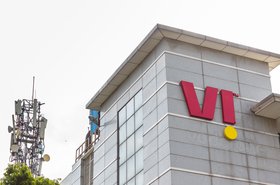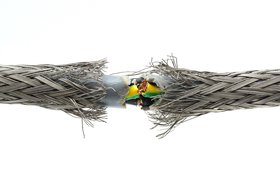UK fiber wholesaler Openreach has exited the first telephone exchange under a major exit program.
The BT-owned company this week announced it has exited the Deddington Exchange in Oxfordshire, making it the first of 4,600 exchanges across the UK to be fully decommissioned as part of its copper network shutdown.
Deddington also becomes the first UK location to see the closure of BT’s copper-based public switched telephone network (PSTN), which uses copper wires to carry analogue voice signals, with end customers all upgraded to digital full fibre.
The rural exchange is the first of three pilot exchanges that are due to close by the end of November. The two other exchanges are located in Ballyclare in Northern Ireland and Kenton Road in London.
“Closing thousands of ‘legacy’ exchanges is a major undertaking, with several million services needing to be migrated. Deddington has served as a proof of concept, demonstrating our ability to decommission legacy exchanges safely, securely, and collaboratively,” said James Lilley, Openreach’s managed customer migrations director.
“Moving to this new digital world will ultimately benefit everybody. CPs will be able to serve their customers from fewer exchanges, helping to save costs through consolidation of equipment and reduced space and power requirements. And millions of end users will benefit from more reliable and faster fibre-based services – that will be scalable for decades without needing major upgrades. It’s not just about switching off old kit—it’s about building a future-proofed, simpler network for the UK.”
BT subsidiary Openreach currently operates some 5,600 telephone exchanges across the UK; most of those are for copper and other legacy services, with the company operating its fiber service from around 1,000 newer exchanges, known as Openreach Handover Points (OHPs). On average, each OHP replaces four to five traditional exchanges, with some OHPs replacing ten or more in some inner city locations.
Openreach it aims to close more than 100 legacy exchanges by December 2030, with the rest closing in the early 2030s. Each exchange exit is expected to take four to seven years, depending on the size and complexity of each facility.
Plans to exit Deddington were announced in 2020, with the physical migration of all customer services out of the Deddington exchange taking around 26 months. Around 1,800 copper lines providing connectivity to local homes and businesses have now been upgraded to fiber, with those new lines now served and managed from the nearby Banbury exchange.
Openreach will continue to work with its customers to remove physical equipment over the next few months to ultimately vacate the building. Teams will assess and re-purpose selected assets, either for use as critical spares across the network or for resale.
Work to exit another 12 exchanges is due to start in April 2026. These include Staines, Thames Ditton, Baynard, Wraysbury, Nazeing, Langford, Allestree Park, Beacon, Childwall, Lundin Links, Carrickfergus, and Glengormley.
Almost all of the group’s exchange footprint is owned by UK real estate firm Telereal Trillium, which acquired the majority of BT’s real estate portfolio back in 2001 for £2.3bn. Over the years, Telereal (now operating as TT Group) has sold a number of exited BT offices and several exchanges, with most converted into residential developments.
DCD visited the BT Tower in London and spoke to Openreach about its exchange exit program in the latest issue of DCD>Magazine. Read it here for free.
Read the orginal article: https://www.datacenterdynamics.com/en/news/uks-openreach-exits-telephone-exchange-in-deddington-oxfordshire/










